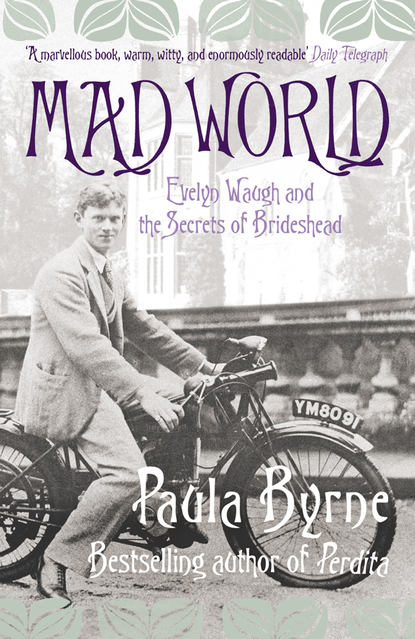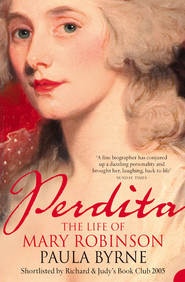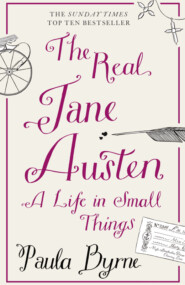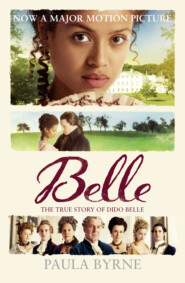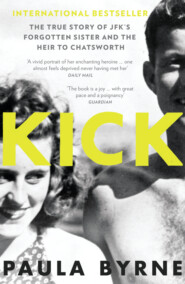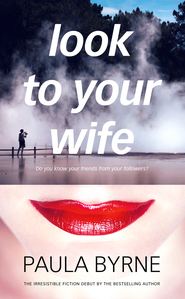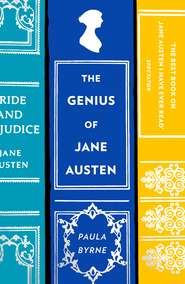По всем вопросам обращайтесь на: info@litportal.ru
(©) 2003-2024.
✖
Mad World: Evelyn Waugh and the Secrets of Brideshead
Настройки чтения
Размер шрифта
Высота строк
Поля
Evelyn’s anarchic sense of humour always sustained him, no matter how miserable he felt. His school friend Roger Fulford said that ‘without Evelyn’s forceful sense of the ridiculous, the spirit of our House would have been unworthy of recall’. Fulford remembers how they stole into a housemaster’s room to read his correspondence, only to find a hilarious letter concerning an impudent boy who had the temerity to eat pineapple chunks in class. This incident found its way into Waugh’s novel Decline and Fall. What Evelyn took particular delight in was the phrasing ‘he was pleased to belch rudely in my face’. He relished the choice of the words ‘pleased’ and ‘rudely’. This was the same delight as that he took in Roxburgh’s felicitous phrases and put-downs – and indeed in the language of the egregious Dudley Carew. He was honing the ear for dialogue that became so acute in his novels, where pompous people are forever saying serious things that are unintentionally wildly funny.
Even in his final months at Lancing he continued to be plagued by feelings of inadequacy, sensing that he was never first choice in anything, always a sloppy second. Alienated and depressed, generally unpopular, he considered running away: ‘I am burdened with failure this term, when I have been most successful really … Everything I have had has come to me shop-soiled and second hand.’
Evelyn had an almost pathological fear and loathing of the second-hand and the second-rate. For him, Lancing came into both categories. Even whilst writing about his sabotaging of the OTC, he was thinking wistfully of the stylishness of the Eton rebellion. In a sense, this was not Evelyn’s fault. He had already been indoctrinated at home into the view that Sherborne was a much better school than Lancing, and at school, the headmaster, Henry Bowlby, himself a former master at Eton, also impressed upon the boys the superiority of the place where he no longer taught: ‘We held him in some awe and he remained aloof from us, never dissembling the opinion, to which we all assented, that Lancing was a less important place than Eton.’
In his biography of Old Etonian theologian Ronald Knox, the adult Evelyn let slip the awe he felt for Eton. He describes Knox’s relationship with his school as ‘a life-long love’. Like many Old Etonians, Knox found Oxford a very poor second best. Eton, wrote Waugh, ‘was the scene of Ronald’s brilliant intellectual development and of his ardent and undying friendships’. Waugh went on to write that:
Most candid Englishmen recognise it as a school sui generis which marks the majority of its sons with a peculiar Englishry, genial, confident, humorous, and reticent; which gives to each as little or as much learning as his abilities and tastes demand; which, while correcting affectation, allows the genuine eccentric to go his own way unmolested; which nourishes its rare favourites … in a rich and humane traditional culture which admits no rival.
Lancing had not been like that. John Betjeman in his verse autobiography Summoned by Bells has one young man at Oxford saying to him ‘Spiritually, John, I was at Eton.’ The same might perhaps have been said of Evelyn Waugh. When Fulford came up to Oxford, Waugh recommended him not to talk so much about Lancing: ‘If you weren’t at Eton or Harrow or Winchester or Rugby, no-one minds much where you were.’
What Lancing schoolboys did have in common with their peers at major public schools such as Eton was the cynicism they felt with regard to the disasters of the Great War. They firmly blamed the ‘old men’, Arthur Waugh’s generation, who had betrayed the golden boys of Rupert Brooke’s generation. Evelyn used the phrase ‘old men’ for the first time in a speech he gave in his final year at Lancing. He would advert to it repeatedly throughout the next decade in his advocacy of the younger generation at odds with the old. This was his manifesto: ‘No generation has ever wreaked such disasters as the last. After numerous small indiscretions it had its fling of a war which has left the civilised world pauperised, ravaged, shaken to its foundations.’ Evelyn later described his last editorial for The Magazine, entitled ‘The Youngest Generation’, as ‘a preposterous manifesto of disillusionment’:
The men of Rupert Brooke’s generation are broken. Narcissus-like, they stood for an instant, amazedly aware of their own beauty; the war, which the old men made, has left them tired and embittered. What will the young men of 1922 be? … They will be, above all things, clear-sighted … very hard and analytical and unsympathetic … They will not be revolutionaries and they will not be poets and they will not be mystics … they will have … a very full sense of humour … They will watch themselves with … a cynical smile and often with a laugh … They will not be a happy generation.
He would become the voice of that unhappy generation.
Evelyn’s panegyric to Eton as a school sui generis was written at a time when his male friends were almost exclusively Old Etonians. Eton was then, and perhaps is still, considered to be the best public school in England. It had, and continues to have, an unsurpassed record of future prime ministers. Its aura of elegance and tradition was, and remains, the stuff of legend. Even George Orwell wrote of his old school that it had ‘one great virtue … a tolerant and civilised atmosphere which gives each boy a fair chance of developing his own individuality’.
When one of Evelyn’s friends, the writer Cyril Connolly (whom he nicknamed ‘Smarty Boots’), sat his entrance exam at the school, he was utterly entranced. Eton was ‘splendid and decadent … the huge stately elms, the boys in their many-coloured caps and blazers, the top hats, the strawberries and cream, the smell of wisteria’. When he overheard a boy with a top hat call out in a foppish drawl a remark to a passing sculler, it all seemed ‘the incarnation of elegance and maturity’. For Connolly it was a paradise built of ‘wine-dark brick’. He was mesmerised by a huge chestnut tree in Weston’s Yard. ‘I was long dominated by impressions of school,’ he wrote in his memoir Enemies of Promise; ‘The plopping of gas mantles in the classrooms, the refrain of psalm tunes, the smell of plaster on the stairs, the walk through the fields to the bathing places or to chapel across the cobbles of School Yard, evoked a vanished Eden of grace and security.’
Eton College was at the pinnacle of the English social system. It had received its royal charter in 1444. For many it embodied quintessential Englishness. ‘The Headmaster of Eton has more to do with the soul of England than the primate of Canterbury,’ quipped Winston Churchill’s Irish cousin, Shane Leslie. Running in and out of School Yard, dominated by Lupton’s Tower and the crumbling cloisters, the boys hurried past the statue of the school’s founder, Henry VI: ‘the past history was there … all this mellowness was continuously sinking into them, a beneficent influence’, recalled another old boy, Harold Acton. It was the school where the English aristocracy sent their boys. No school had a higher proportion of titled young men on the roll. It had close links with the royal family. Windsor Castle lies at the far end of the street.
The masters or ‘beaks’ were in many respects lesser beings than some of the boys. The more servile of them would long to be asked to the boys’ great homes, sometimes long even for the mere opportunity to talk to the most important boys.
Yet Cyril Connolly and Anthony Powell (another Old Etonian who would become a novelist and a friend of Waugh’s) both stressed that a boy’s status depended not on family money or rank, but rather ‘on a curious blend of elegance and vitality … and the gift of being amusing’. Powell thought that this made Eton different from Oxford, where he too went on to become an undergraduate: ‘I recall no sense of inferiority on account of many boys’ parents being richer and grander than my own, though of course many were. Indeed the first powerful impact of snobbery and money was brought home to me, not at Eton, but at Oxford.’
Nevertheless, this small and exclusive world existed on a finely graduated but keenly felt code of manners. Editorials appeared in the school magazine on such subjects as ‘The Top Hat’. Rules were strict. Boys were prohibited from driving in motor cars on Sundays, for example. One wonders at how many other schools a sufficient number of boys would have had motor cars to make such a rule worth writing.
The education of the Honourable Hugh Lygon and his older brother Lord Elmley at Eton and then Oxford followed a pattern that had endured in the family since the early nineteenth century. They were considered ‘important boys’ by the masters, since their father, Lord Beauchamp, was a prominent establishment figure. Despite the great wealth and social standing of their father, the boys were lacking in pretension and snobbishness. Anthony Powell thought that it was impossible to conceive a lord less snobbish than young Elmley.
Hugh Lygon went to Eton in 1918. Then as now, there were seventy scholars or ‘Collegers’, known as ‘tugs’. The fee-paying boys were ‘Oppidans’. Housemasters were called ‘m’tutor’. A ‘new-tit’ was a new boy. A ‘Scug’ was a boy who didn’t have his colours. A ‘dry bob’ played cricket, a ‘wet bob’ chose rowing, a ‘slack bob’ did neither. Each school term was known as a ‘half’. ‘Tuck’ was known as ‘sock’, ‘messing’ was cooking tea together in groups of three (who took turns to eat in each other’s rooms). There were no dormitories: each boy was given his own room simply furnished with a ‘bury’ – a chest of drawers with a desk on top, supporting a small bookcase. A fold-up bed was stowed behind a curtain. Boys were permitted to furnish their rooms to their own taste, typically with ottoman, armchair, boot box, brush box and pictures from Blundell’s.
The boys wore tailcoats and top hats, but if a boy was elected to ‘Pop’ he could wear flamboyant waistcoats, black and white check trousers, and white stick-up collars. Boys in the self-elected and elite group ‘Pop’ were permitted to beat younger boys. This ‘privilege’ did not extend to the schoolmasters. Pop was a body of twenty-eight boys, who exercised overall authority as prefects and were generally worshipped by the other boys. The group was based overwhelmingly on athletic prowess but members were sometimes admitted for their good looks, charm and wit. It was regarded as the summit of school distinction. Some boys never got over having been passed over for Pop. Julian Mitchell’s play Another Country is based on the not outrageous premise that Guy Burgess was so scarred by the experience of not getting into Pop that he turned against his country and became a Russian spy. One desperate boy offered his sister for sex if he were elected. Connolly observed that ‘Pop were the rulers of Eton, fawned on by masters and the helpless Sixth Form’. The Sixth Form Select, consisting of twenty or so academically gifted boys, followed Pop in status. The double-file procession of seniors – largely Pop and the Select – into chapel after everyone else was seated was known as the ‘Ram’.
Good looks, charm and wit may have been as important as social status, but it was best of all if the whole package came together. When it came to Pop, brains did not count for much. Hugh Lygon was typical of Pop in being admired for his floppy blond hair, his handsome face and his charming demeanour rather than his intellectual capacities, which were distinctly limited.
The dress code and the quasi-feudal system of ‘fags’ and ‘fagmasters’ – junior boys performing menial tasks for senior ones – conjure up images of Flashman in Tom Brown’s Schooldays, but many of the boys of Hugh Lygon’s generation had memories of kindly fagmasters. A fag’s duties included making boiled eggs and toast and running errands to the shops on Eton High Street. Some fagmasters of course abused their positions and, as Cyril Connolly put it, ‘developed into lifelong flagellants’. Connolly claimed that he was damaged for life by his beatings from older boys, often administered for being ‘generally uppish’. The small boys would be in their tin baths as they waited in fear for the summons of a ‘wanted’ man. When his name was called, the victim would be summoned to ‘the chair’, which would be placed in the middle of the room. The waiting was the worst part. Once the chair was in place, a storm of accusation broke out. It was advisable not to answer back. Then the boy would kneel on the chair, bottom outward and hands stretched over the back. The beating would begin: ‘Looking round we could see a monster rushing towards us with a cane in his hand, his face upside down and contorted.’ When it was over, one of the older boys would say ‘Goodnight’. ‘It was wise,’ Connolly reported, ‘to answer politely.’
A boy’s house was very important because Eton was so large, and the housemasters were both autocratic and independent. Each ran his house as he wished. Hugh Lygon boarded at Walpole House, a building of red brick that looked rather like a clinic. Run by Arthur Goodhart, its reputation was as the worst house in the school, with a low sporting record, its only silver trophy being the Lower Boys’ Singing Cup. Tolerant scepticism was the keynote. Goodhart was an eccentric, a repressed bisexual who had a fetish for ladies’ shoes. This he made no effort to disguise: he would encourage the boys to admire his latest volume of Feminine Footwear Through the Ages. In his fifties, with high forehead and walrus moustache, he had a ‘look of unreliable benevolence, an awareness of being always prepared for the worst, and usually experiencing it’. Anthony Powell described him as: ‘In certain respects a typical schoolmaster; in others, an exceptional example of his profession.’ He wore the Eton master’s uniform of black suit and white bow tie, and was old-fashioned enough to retain the starched shirt and cuffs of an earlier generation, often remarking that in his own time at Eton a boy who did not put on a clean stiff shirt every day was ‘an absolute scug’. Goodhart deplored special sports clothes and considered an ‘old tailcoat’ to be entirely suitable for the Wall Game (of which he was a star).
Goodhart was a classics teacher whose real love was music. The boys in his house were encouraged to sing a hymn at house prayers every night. Goodhart accompanied them on the harmonium. One night he chose ‘Good King Wenceslas’. They reached the verse: ‘Heat was in the very sod/ Which the saint had printed’. Goodhart observed a boy laughing. It was Lord Elmley. He kept him behind and gave him a dressing down. Powell takes up the story: ‘‘‘You were laughing at the word sod. Do you know what it means?’’ He was foaming by now. ‘‘It is in vulgar use as short for sodomism – the most loathsome form of dual vice’’.’ There was a certain amount of discussion amongst the boys afterwards as to what he regarded as the less loathsome forms of ‘dual vice’.
Powell says that ‘romantic passions’ were much discussed, though ‘physical contacts were rare’. He does nevertheless mention ‘brutal intimacies’ taking place. ‘The masters might look on the subject as one of unspeakable horror; the boys behaved much in the manner of public opinion as to homosexuality today; ranging from strong disapproval to unconcealed involvement.’
Goodhart was also responsible for bringing back theatrical performances by the boys, following a ban that had been in place for fifty years. There was no Eton Drama Society, but individual housemasters began to put on plays. In July 1919, Goodhart’s House Dramatic Society produced Doctor Faustus. Harold Acton remembered it as a ‘superlative performance’ of Christopher Marlowe’s play, with Lord David Cecil playing ‘a nervously saturnine Mephistopheles’ and Hugh Lygon as a ‘cherubic Helen of Troy’. The Eton College Chronicle singled out Hugh’s performance for praise and the success of this production gave Goodhart the courage to try The Importance of Being Earnest. Once again, Hugh played a female role, this time Cecily Cardew. Again, he was singled out for his abilities: ‘he proved an excellent ingénue and made more of the part than is usually possible in the circumstances’. The best moment of the play, said the Chronicle, was when Cecily filled Gwendolyn’s tea with sugar. Hugh may not have been a sporting boy, or a clever boy, but he was clearly gifted dramatically. His beauty made him a convincing female. A photograph of him cross-dressed as Cecily shows his delicate features.
At the time, Wilde’s masterpiece was considered to be a shocking play, especially when rendered by schoolboys. The author’s reputation had contaminated the comedy. The performance contributed to the whiff of deplorable morals that hung over Goodhart’s house.
Hugh was a good friend of Anthony Powell. They messed together and became a trio with Denys Buckley, a future High Court judge, until Hugh left to travel abroad before going up to Oxford. Boys were allowed to choose their own messmates, who would not be necessarily of the same year: Powell was a year below Lygon. As at Lancing, tea was the most important meal of the day. After Hugh’s departure, Powell messed with a boy called Hubert Duggan, whose glamorous mother (an American heiress) married Lord Curzon, Viceroy of India. The character of the charming, handsome, romantic, dissolute Stringham, who descends into drunken ruin in Powell’s A Dance to the Music of Time novel sequence, is usually said to be a portrait of Duggan. So he is, but he is also laced with a dash of Hugh Lygon.
Hubert and Hugh were two of a kind: dashing and moving in the highest social circles. They were also prone to melancholy as well as auto-destructive drunkenness. They embodied a type that would come to obsess both Waugh and Powell: the charismatic aristocrat who represents a gilded but decaying world, who lacks direction and is displaced by the grey modernity of a Widmerpool (Powell in A Dance to the Music of Time) or a Hooper (Waugh in Brideshead). In writing of Eton in his memoir Enemies of Promise, Cyril Connolly put forward his theory of ‘permanent adolescence’. He proposed that the experience of public school was so intense that it dominated the lives and arrested the development of those who underwent such an education.
Despite his Eton education, Hugh Lygon needed extra private coaching to get him into university. An Oxford don was brought down to Madresfield to tutor him. Another summons came to a successful actor called William Armstrong who served as a kind of dramatic coach-tutor to the family, though his real job was to keep an eye on Hugh’s drinking and other failings. Armstrong, who later turned from acting to directing and transformed the Liverpool Rep into the best regional theatre in the country, found it humiliating to have to sit at a separate table for dinner, like an upper servant. But he adored Hugh and always kept in touch. His time at Madresfield, which he remembered with the deer cropping the park and afternoon tea under the cedars on the immaculate lawn, remained one of the high points of his life.
Remember that the Eton Candle is our challenge – our first fruits – the first trumpet call of our movement – it is OURSELVES. (Brian Howard to Harold Acton)
Hugh Lygon’s Eton generation included boys of extraordinary talent and precocity. The Eton Society of Arts was run by sixth-formers Harold Acton, son of a cosmopolitan artist, and Brian Howard, an American boy born in Surrey who believed that he had Jewish blood. They edited the Society’s magazine, called the Eton Candle. It had a shocking pink cover. The Society devoted itself to modernism. Acton and Howard were leaders and rebels. Howard was nearly expelled for taking a toy engine into chapel. Acton was beaten for not knowing the football colours of the various houses: ‘Smack, smack, smack. I shifted round so that the blows might fall in a different place. ‘‘Keep still,’’ he shouted, ‘‘it’s my religion.’’ I said, ‘‘I’m turning the other cheek.’’’
Brian Howard was considered beautiful as well as brilliant. Connolly remembered his ‘distinguished impertinent face, a sensual mouth, and dark eyes with long eyelashes’. Others remarked upon his chalk-white skin and wavy jet-black hair. His eyes seemed to be heavily made-up. He was tall and lean. But it was his speech and mannerisms that made him so unique. Even at the age of thirteen, he seemed like a throwback to another era. He was camp personified, a fop out of a Restoration comedy. Many writers would attempt to capture his character, not only Evelyn Waugh. The Brian Howard voice is unmistakable: ‘My dear,’ he once said to Harold Acton, ‘I’ve just discovered a person who has something a little bit unusual, under a pimply and rather catastrophic exterior.’ Waugh caught the style perfectly in the figure of Anthony Blanche in Brideshead Revisited.
His parentage was mysterious. He was grandly named Brian Christian de Clavering Howard, but his friends discovered that his father’s real name was Gassaway. The ‘Howard’ was made up – and rather bad form, since there was no connection with the Howards of Castle Howard. An entirely exotic figure, Brian made no attempt to hide his homosexuality. Yet he was, says Connolly, ‘the most fashionable boy at school’.
Harold Acton was tall, with a long thin nose and a high-domed head that was sometimes compared to a peanut. His eyes were like black olives. He had a slightly swaying carriage. He was formal and courteous, with a touch of impishness. The two boys had similar parentage: American mothers, fathers who were art dealers with Italian affiliations. Acton’s family home was ‘La Pietra’, an exquisite Tuscan mansion stuffed with paintings and antiques. The Actons lived like characters out of a Henry James novel. Figures such as Diaghilev the ballet master and Leon Bakst the avant-garde stage designer visited them at La Pietra. Brian and Harold, then, were extremely sophisticated and precocious, the embodiment of cosmopolitan modernity, a culture that could hardly have been more removed from that of the old English aristocracy with their large, cold, shabby homes and annual routines of hunting and shooting.
The two boys cultivated exaggerated mannerisms of speech and gesture. Both had panache and charm. One of their Eton contemporaries described them at the theatre: ‘Brian and Harold walked into the stalls, in full evening dress, with long white gloves draped over one arm, and carrying silver-topped canes and top-hats, looking like a couple of Oscar Wildes.’ In thrall to Diaghilev and the Ballets Russes, they danced at Dyson’s to the pulsating tones of Stravinsky’s ballet music. Brian was a wonderful dancer, a worshipper of Nijinsky. They were stylish and elegant – theirs was an altogether far more nuanced rebellion than that of Evelyn Waugh’s ‘Bolshies’ and the ‘Corpse Club’.
They loved modernist painting, read Marcel Proust and Jean Cocteau. Edith Sitwell praised their schoolboy writings. They were described as the ‘cream of intellectual Eton’, full of promise, with their plans for theatre trips and magazines. Their American heritage and modernist radicalism liberated them from the constraints of the English. They despised ‘dull frowsy England – awful men in bowler hats and bad tempers trotting up and down wet pavements’. Rebelling against philistinism, as other boys walked up the Eton High Street towards Windsor, they wandered like Parisian flâneurs, heading in the opposite direction for Slough in pursuit of the ‘bourgeois macabre’. Howard fantasised outrageously about hidden perversions behind respectable facades.
The Eton Society of Arts’ sacred meeting place was the Studio, a room in the house of the drawing master. It was a retreat from the school, scruffy and stuffed with pots, jars and drawing implements. The Society comprised an extraordinary group of young men. Henry Yorke, who went on to write novels under the name Henry Green, was secretary; Anthony Powell and Robert Byron, who would become a superb travel writer, were also members, as was Alan Clutton-Brock who went on to be the art critic of The Times and then Slade Professor of Fine Arts at Cambridge.
But they were not all artists and intellectuals. The Honourable Hugh Lygon was a member, more on account of his looks than his intellect. He had no artistic pretensions whatsoever. By now he was a slim but muscular youth, always elegantly dressed. It is easy to see why Howard and Acton wanted him in their club. Some said he had a face out of Botticelli, while for Powell he was ‘fair-haired, nice mannered, a Giotto angel living in a narcissistic dream’. Unlike nearly everyone else in the Society of Arts, he was sporty and masculine, a boxer and an athlete. As a rule, Harold and his followers set themselves firmly against ‘macho hearties’. The code of aestheticism that they lived by was partly a reaction against the hearty public school ethos founded on games worship. But they were happy to make Hugh, with his beauty and his charm, an exception to their rule. There was a suspicion that he was only there because one of the more influential members of the group – Howard, perhaps, or Byron – thought that he was absolutely gorgeous and that he was not averse to their advances. An aura of raffishness, if not outright scandal, surrounded the group as they met on Saturday evenings and discussed such subjects as ‘Post-Impressionism’, ‘The Decoration of Rooms’ and ‘Oriental Art’.
The shocking pink Eton Candle for 1922 was indeed known to its detractors as the Eton Scandal. Extravagantly praised by Edith Sitwell, doyenne of high modernism, it was dedicated to the memory of Eton’s most notorious old boy, the arch-aesthete, prolific poet, republican radical and lifelong flagellant, Algernon Charles Swinburne. Beautifully printed on hand-made paper, with yellow endpapers, the Candle included a contribution by a young master called Aldous Huxley and an essay by Brian Howard entitled ‘The New Poetry’, which attacked the staid Georgian poets and praised the innovative verse of Ezra Pound. Like Evelyn Waugh at Lancing, Howard set himself against the ‘old men’ of the pre-war era who had murdered the golden boys of Rupert Brooke’s generation:
You were a great Young Generation …
And then you went and got murdered – magnificently
Went out and got murdered … because a parcel of damned old men
Wanted some fun or some power or something.
As Cyril Connolly put it, if you didn’t get on with your father in those days, you had all the glorious dead on your side.
Having conquered Eton, it was only a matter of time before the two young Turks took on Oxford. Howard once exclaimed to Acton: ‘Do you realise, Harold – please pay attention to this – that you and I are going to have a rather famous career at Oxford?’ Both boys seemed destined for great things, dazzling careers in literature or the arts. But it was Eton that made them. University was to be an enemy of promise: it came to seem something of a let down. Ironically, the person who assured their fame and who immortalised their Oxford turned out to be the Lancing boy.
CHAPTER 3 Oxford: ‘… her secret none can utter’ (#ulink_e143f630-24f8-518e-8a3c-5d8d16d6a3bb)
There is nothing like the aesthetic pleasure of being drunk and if you do it in the right way you can avoid being ill next day. That is the greatest thing Oxford has to teach.
(Evelyn Waugh, Diaries)
He was in love with my brother.
(Lady Sibell Lygon)
January 1922. ‘Half past seven and the Principal’s dead.’ Evelyn Waugh was in bed in his undergraduate rooms in Hertford College, Oxford. He was woken by this call from his servant or ‘scout’, Bateson, a melancholy man, whose job it was to change the chamber pots twice daily and bring jugs of shaving water every morning. Evelyn was eighteen years of age, and he had come up to Oxford at a different time of year from most undergraduates. He had won a scholarship to read History at Hertford. His original plan had been to spend time in France before Oxford, but his father was anxious for him to start university life without delay. Evelyn felt that it put him at a disadvantage. He was resentful. His rooms, up a poky staircase above the Junior Common Room Buttery, overlooking New College Lane, were modest. All the best ones had been taken in Michaelmas (autumn) term. Crockery rattled below and cooking smells drifted up to his rooms, though sometimes that meant a pleasant aroma of anchovy toast and honey buns.





